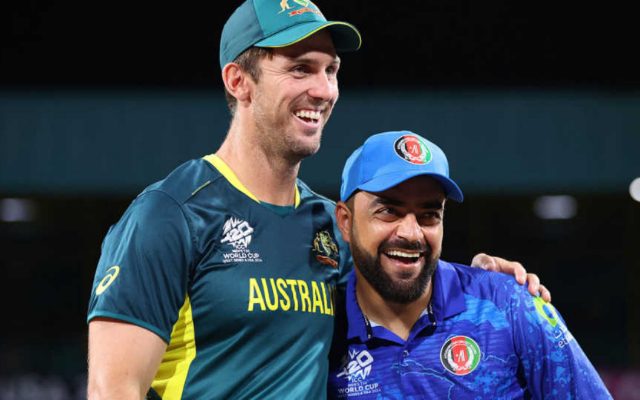Cricket Australia (CA) Chair Mike Baird has reaffirmed the board’s position on refraining from bilateral matches against Afghanistan, a move that has sparked debate within the cricketing community. This decision comes amidst accusations of inconsistency from outgoing ICC chair Greg Barclay, adding fuel to an already contentious issue.
Controversy Around Bilateral Matches with Afghanistan
In recent years, Afghanistan’s participation in international cricket has been marred by political tensions. Cricket Australia’s decision to avoid bilateral matches stems from concerns over the lack of women’s cricket development under Afghanistan’s current regime. CA has consistently maintained that this decision reflects their stance on promoting inclusivity and gender equality in cricket.
However, this has not come without criticism. Critics argue that boycotting bilateral matches while competing against Afghanistan in ICC tournaments sends mixed signals. The ethical dilemma has put CA’s policies under intense scrutiny.
Greg Barclay’s Criticism of Cricket Australia
Greg Barclay, whose tenure as ICC chair concluded on December 1, openly criticized CA’s approach during an interview with the UK’s Daily Telegraph. He argued that true principles require full commitment, even if it means risking competitive advantages in World Cups. His comments suggested that CA’s selective boycott undermines the integrity of their position.
Barclay said, “If you really want to make a political statement, don’t play them in a World Cup. Sure, it might cost you a semi-final place, but principles are principles. It’s not about having half a principle.”
Mike Baird’s Response to Barclay’s Comments
In response, Mike Baird stood by CA’s decisions, highlighting their support for Afghan female players now living in Australia. These athletes, who fled restrictive conditions in Afghanistan, have received opportunities to continue their cricketing journey. On January 30, an Afghanistan Women’s XI is set to play a Cricket Without Borders XI at Melbourne’s Junction Oval.
Baird emphasized that this event symbolizes Australia’s commitment to fostering women’s cricket globally, aligning with their broader stance on gender equality in the sport.
Baird said, “I saw those comments this morning, and I hadn’t heard those views before in kind of any forum. So obviously he’s entitled to his view. He’s going on to new things, and we wish him well on that, but we’re very proud of the position we’ve taken. We’re supporting the Afghan women’s cricket team and those members that are still here, and we’ll be doing that at the end of the summer.”
He further added, “People have different views, of course, but we’re very comfortable with the position we’ve taken. There’s all types of lines you can draw. We’ve drawn a line, we’ve taken a position and we’re proudly standing up where we think we should. I think that event that’s going to come at the end of January is a celebration of women and what we’re seeing in the women’s game in this country. We remain proud of it.”
Baird also linked the decision to the wider context of growing women’s cricket in Australia. Events like the upcoming match not only showcase talent but also serve as a reminder of cricket’s potential to drive social change. CA’s efforts to support female refugees resonate with their principles of inclusivity and equality.
Baird stated, “It’s obviously a difficult time when you’re going into a competitive Test series, and different teams will take different approaches. We totally understand that. There’s huge pressure that comes, all types of things that can distract.”
Afghanistan’s Participation in ICC Events
Afghanistan remains an integral part of ICC tournaments, often showcasing strong performances in global events. This has led to debates on whether sports organizations should entirely sever ties with regimes that conflict with their values or continue to engage while addressing broader concerns.
In a separate development, India’s cricket team has opted to cancel open training sessions during their Australian tour. The decision follows an overwhelming turnout at a practice session in Adelaide, where over 5000 fans gathered to watch. Concerns about distractions and maintaining focus ahead of crucial matches likely influenced the decision.
Get the latest cricket news here, like us on Facebook, and follow us on Twitter and Instagram for more such updates.

